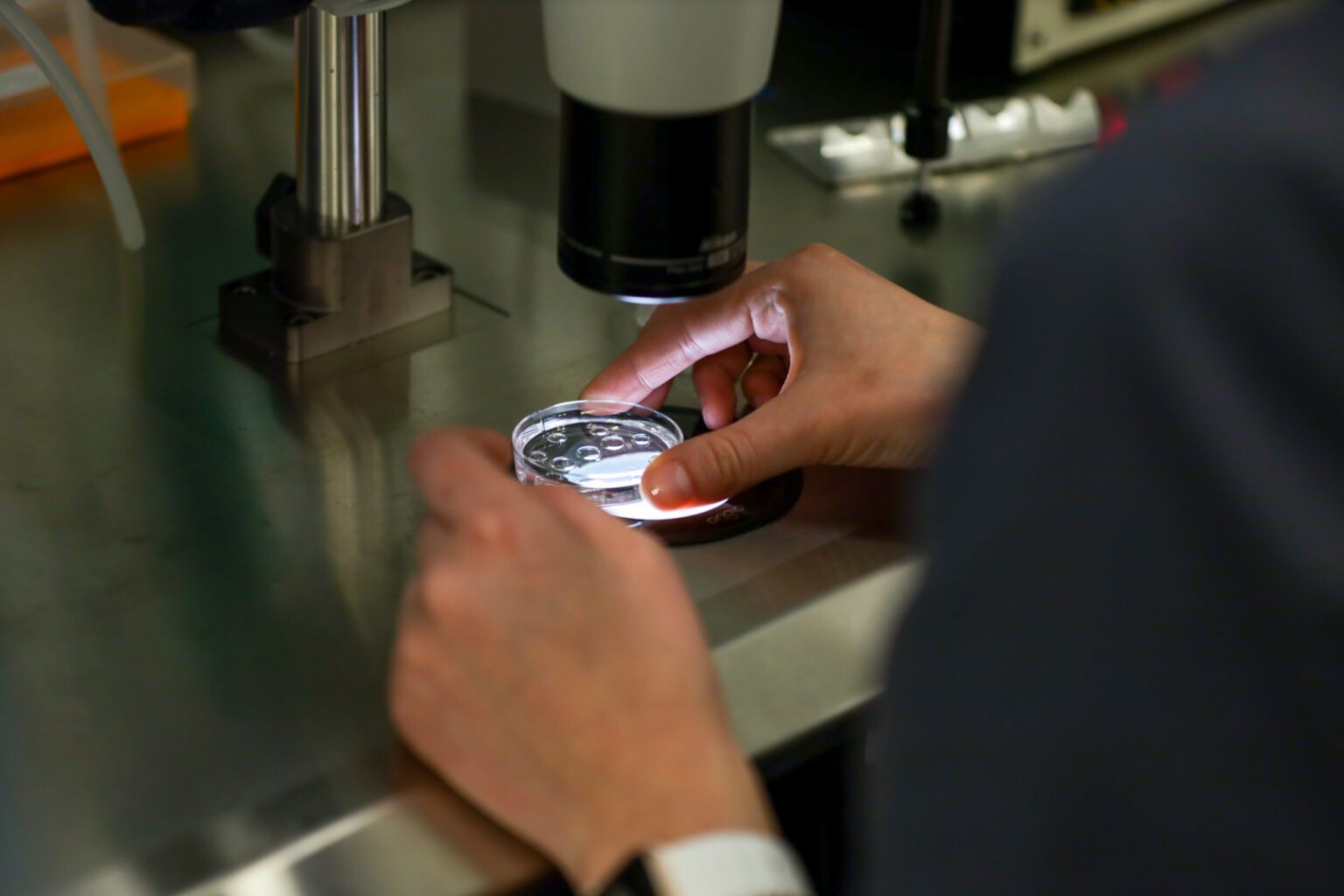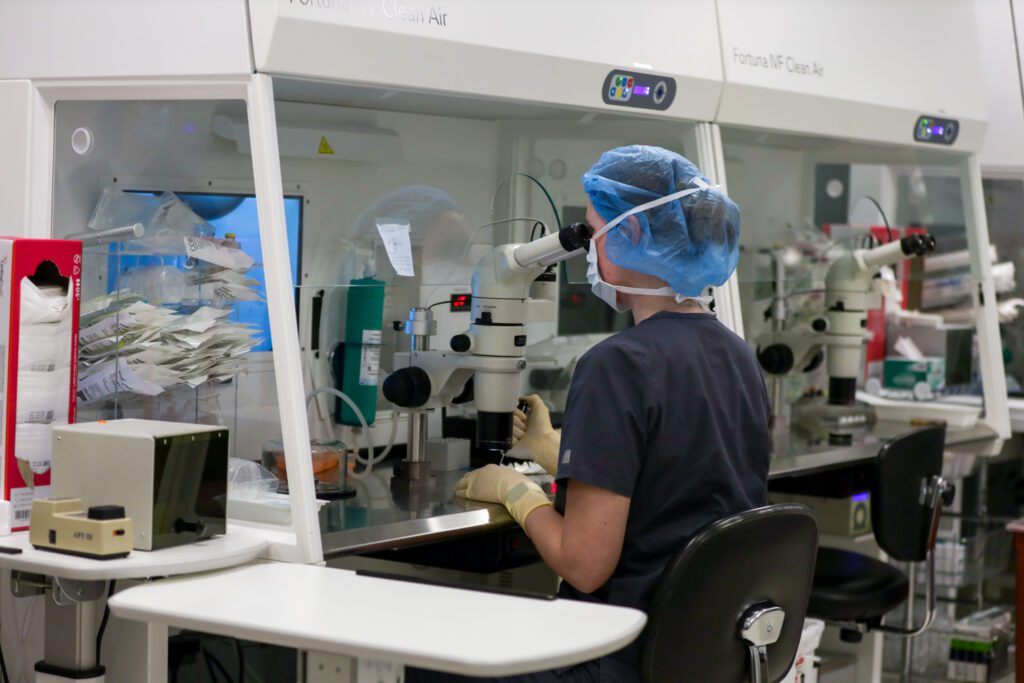What is Genetic Testing?
Genetic testing is a medical process that analyzes DNA to identify changes or abnormalities in genes, chromosomes, or proteins. In fertility, genetic testing is used to detect inherited conditions, chromosomal abnormalities, or other genetic factors that might affect reproductive health or pregnancy outcomes.
By uncovering specific genetic risks, couples and individuals can make informed decisions about their reproductive options.

Explore Genetic Testing Options
We offer advanced genetic testing options to support your fertility journey.

PGT-A

PGT-M

PGT-S
Advancing Fertility Care with Cutting-Edge Genetic Testing
Advancements in genetic testing have been driven by cutting-edge technologies that provide highly accurate and detailed insights into genetic and chromosomal health. These innovative methods allow for faster, more precise testing, ensuring the highest level of reliability in identifying abnormalities or genetic risks. As the field continues to evolve, new techniques and tools are enhancing our ability to personalize fertility treatments, improving outcomes for patients and pushing the boundaries of what’s possible in reproductive health.
Book Your Appointment Today
Schedule a ConsultationThe Genetic Testing Process

Initial Consultation & Testing Recommendations
Meet with your fertility specialist to discuss your medical history, family history, and fertility goals. This consultation helps determine if genetic testing is appropriate for your treatment plan. Based on your unique situation and reproductive needs, your doctor may recommend specific types of testing, such as PGT-A, PGT-M, or PGT-S.

Sample Collection & Embryo Biopsy
For embryo testing, eggs are retrieved, fertilized through IVF, and embryos are cultured to the appropriate stage for biopsy. For carrier screening, a blood or saliva sample is taken. During the embryo biopsy, a few cells are gently removed from each embryo for testing, ensuring the embryo remains intact and viable for transfer.

Laboratory Analysis
The genetic material is analyzed using advanced techniques like next-generation sequencing to identify chromosomal abnormalities or genetic conditions.

Results Review
Your doctor reviews the testing results with you, explaining findings and how they impact your fertility plan. Based on the results, embryos are selected for transfer, or additional treatment options are discussed to optimize your chances of success.

Embryo Transfer
Your selected embryo is transferred to the uterus, with follow-up care to monitor and support your pregnancy journey.
Common Genetic Testing FAQs
The testing process involves safely removing a few cells from the embryo’s outer layer. Studies show this does not harm embryo development or implantation potential when performed by experienced embryologists.
While it improves success rates by selecting the healthiest embryos, genetic testing cannot guarantee pregnancy. Other factors, such as uterine health and overall embryo quality, also play a role.
No. Preimplantation genetic testing is strictly for medical purposes, identifying chromosomal or genetic disorders—not selecting traits.
Testing results typically take 1-2 weeks or longer. If you plan to use the results to select an embryo, you may need to freeze embryos and schedule a frozen embryo transfer (FET) in a future cycle.
Coverage varies depending on your insurance provider. Our financial counselors are here to assist you in understanding your coverage and exploring cost details and financial options. We’re happy to guide you through the process and answer any questions you may have.





